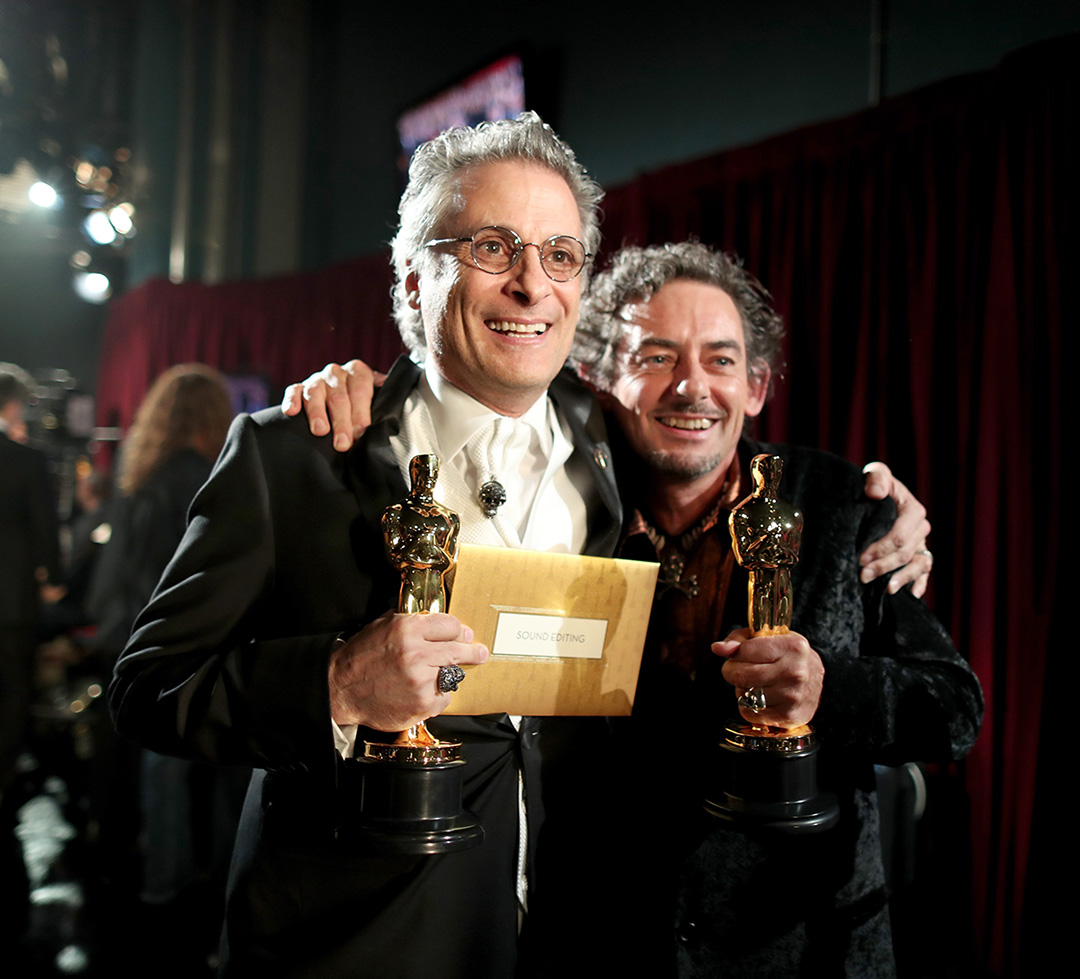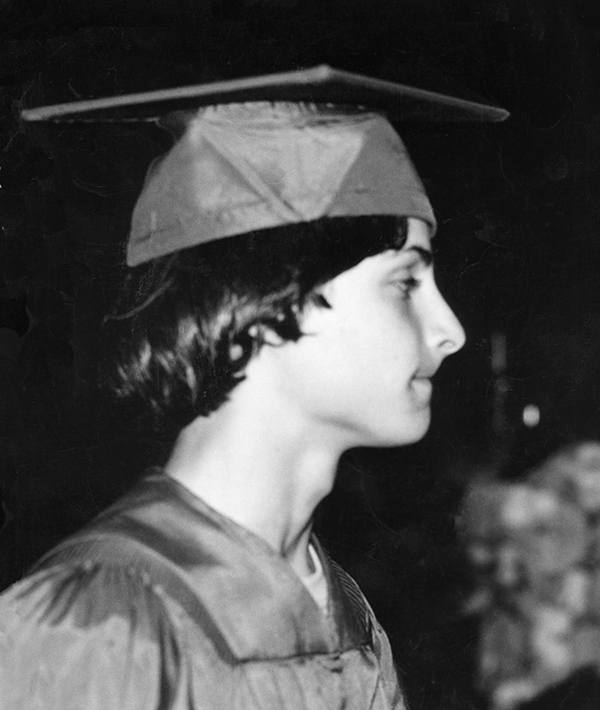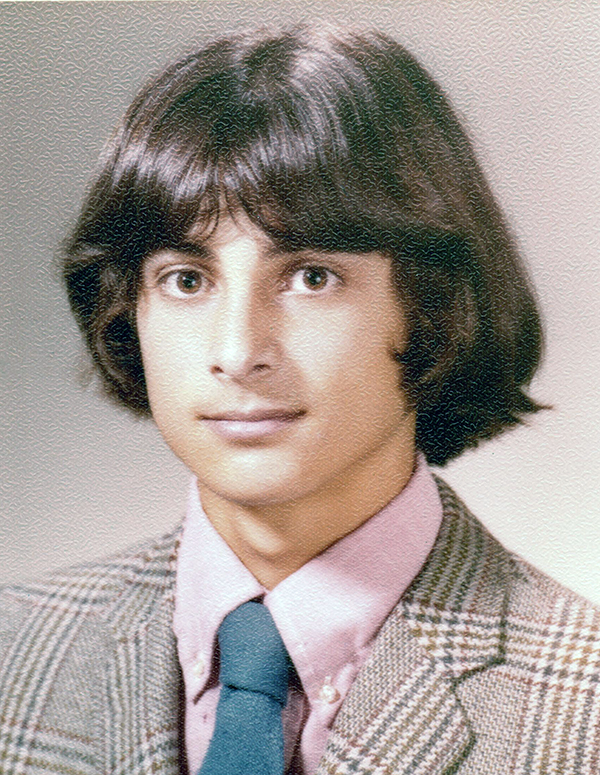
Mark A. Mangini (left) and David White backstage at the Oscars after winning their Best Sound Editing award for “Mad Max: Fury Road.” Photo by Christopher Polk/Getty Images
By Alice Waugh
Lincoln’s Tim Mangini is very proud of his older brother these days. Mark Mangini, a 1974 graduate of Lincoln-Sudbury Regional High School, won an Academy Award with David White on February 28 for Best Sound Editing for the post-apocalyptic action film “Max Max: Fury Road.”
Mark and Tim—two of the six Sudbury Manginis who graduated from L-S between 1973 and 1981—have also collaorated on several occasions. In 1979, Tim worked with his brother at Hanna-Barbera Productions on the sound tracks of several Saturday morning cartoons. Several years later, he rejoined Mark as an apprentice sound editor and worked his way up to become a sound editor at Mark’s company. He is now senior director of production technology at WGBH and spent his first 18 years there as director of broadcast for “Frontline.”
This was the third Oscar nomination and first win for Mark, who has more than 125 films to his credit. He is renowned for recording and editing a new roar track for Leo the Lion, the MGM lion mascot, according to Wikipedia.
“All of us were rooting hard for Mark as we watched with good friends,” said Tim (L-S ’77), who met his wife Janey Winchell at L-S in the senior play (their daughter Amelia is currently a junior). “There was a collective roar when the award was announced, and every one of us in the family is immensely proud of what he has accomplished. Working with him in Los Angeles gave me some insight into his immense creativity and total dedication to his craft. Post-production can be a brutal business. Mark spent countless hours in dark rooms away from his family making the films he labored on better. It is so very rewarding for us to see him acknowledged for his work on ‘Mad Max’ and ultimately for his body of work.”
Once the post-Oscar hoopla died down a little, the Lincoln Squirrel interviewed Mark via email. He also kindly provided the Squirrel with photos from his Sudbury days.
When did you graduate from L-S, and what were your interests growing up?
I graduated in 1974. I was a hobbyist filmmaker as a kid as well as a guitarist. I played on the L-S varsity soccer team and continued playing club soccer here in Los Angeles until I was 55. Always loved movies but never understood there was a career in it.
What inspired you to get into sound editing, and how did you learn to do it? Were you an AV nerd as a kid? 🙂
In 1976, I decided that I wanted to work in movies in any capacity, though I had no training whatsoever. Rather than consider film school, which I didn’t, I bootstrapped the whole thing and moved to Los Angeles just hoping to find a job. My first gig was at Hanna-Barbera Studios, the company that was famous for Saturday morning cartoons like “The Flintstones” and “Scooby-Doo.” My first job in the film industry was editing sound for those cartoons for three years. I apprenticed for about a year and became quite good at it and was promoted quickly until I was running my own shows
 I had the good fortune of having some the great sound editors in the business working all around me, and they seemed to love a kid who was curious and willing to put in his own time to learn, which I did, a lot. I befriended Joe Hanna, one of the great animators of that era and owner of the company, and he gave me great advice on careers and success. I was not an AV nerd of any kind. I had no technical proclivities of any kind. I was a musician and and a soccer player when I left for Los Angeles.
I had the good fortune of having some the great sound editors in the business working all around me, and they seemed to love a kid who was curious and willing to put in his own time to learn, which I did, a lot. I befriended Joe Hanna, one of the great animators of that era and owner of the company, and he gave me great advice on careers and success. I was not an AV nerd of any kind. I had no technical proclivities of any kind. I was a musician and and a soccer player when I left for Los Angeles.
What did it feel like when they called your and David’s names? How did the whole Oscar pageant compare to the other times you’ve been nominated?
The feeling is pretty hard to describe. I’d been nominated three times before and every time, I thought I was going to win. The anxiety is very crushing, and “The Revenant” had been on a roll recently, scooping up awards. But this one felt a little different. I was much more confident because I knew “Mad Max” was special. I also had been asking around the community what people thought about the nominated films and got lots of good feedback. Nonetheless, nothing prepares one for going up on stage in front of a billion people and speaking. If anyone was watching closely, my first words on stage were bleeped out because I used the “F” word. Just overcome with emotion and joy, really. Didn’t script that—just blurted it out.
 This Oscar pageant was very different because “Mad Max” had been nominated for 10 awards. It was, clearly, an exceptional film made more so by the very collegial and family-like atmosphere George Miller creates for the films he works on. Though all the nominees were from different disciplines, we bonded like a tribe that we called the “Mad Maxers” and were rooting for each other at every award announcement. It all made for a wonderful and exciting night that was made even more so by all the others winning.
This Oscar pageant was very different because “Mad Max” had been nominated for 10 awards. It was, clearly, an exceptional film made more so by the very collegial and family-like atmosphere George Miller creates for the films he works on. Though all the nominees were from different disciplines, we bonded like a tribe that we called the “Mad Maxers” and were rooting for each other at every award announcement. It all made for a wonderful and exciting night that was made even more so by all the others winning.
I’ll tell you, though, that I’m still not fully sure I won. It’s so hard to watch that moment as they open the envelope (which they gave me as a gift). Everything goes into slow motion and you are very hyper-aware. Your mind is racing and wondering “what if it’s not me…what if it is… is it me… did I get passed over again?” It’s a bizarre self-indulgent moment that is hard to stomach. I’m still not believing they said my name—but glad they did.
What do you consider to be your specialty or greatest strength as a sound editor?
The ability to understand people’s needs. The ability to interpret what people say into what they really want. A massively profound work ethic. A desire to always do something new and creative. My love of good craft. My love of storytelling. My love of working communally.
Any anecdotes or general impressions about working on “Mad Max: Fury Road”?
I was sent to Sydney, Australia to begin my work on the film. We were working round the clock from 8 a.m. t0 midnight and the production was catering every meal at the studio. After about two weeks I was getting a little tired of the same food over and over again. One morning, as we were passing the catering team setting up, an associate asked me “What’s for lunch?” to which I replied with a scowl, “I bet it’s the lamb.” Suddenly the cook’s head popped up from behind the counter. I didn’t see her and knew she heard me. The next day I came down with food poisoning in the afternoon. I approached George Miller, our director, and explained my symptoms and asked his permission to go home and recover. He said “Lift up your shirt and lie down” and proceeded to remove all the items from our communal dining table. He probed my intestines for a short while then gave me a prescription and a diagnosis. For you see, before George Miller became a film director, he was a doctor.

Leave a Reply